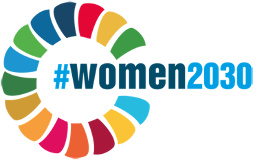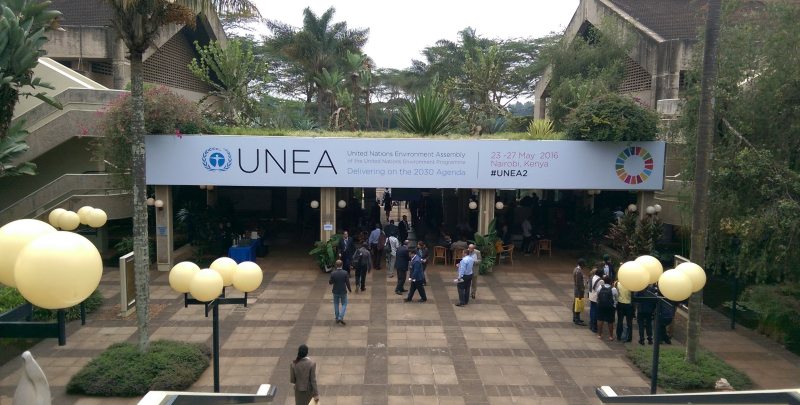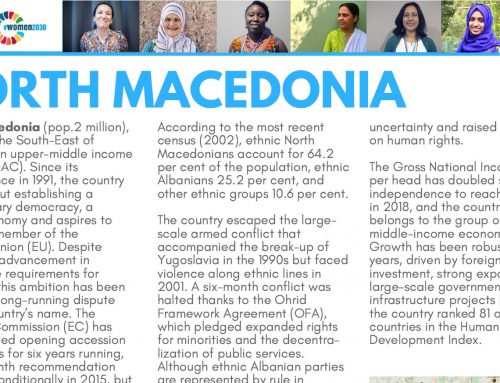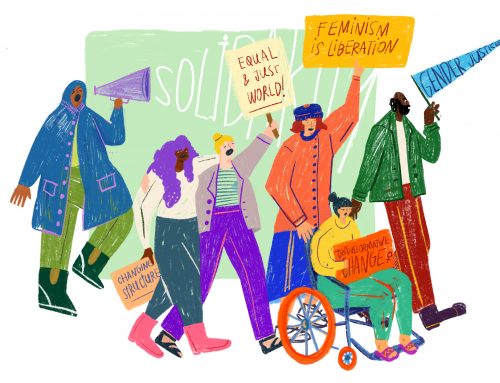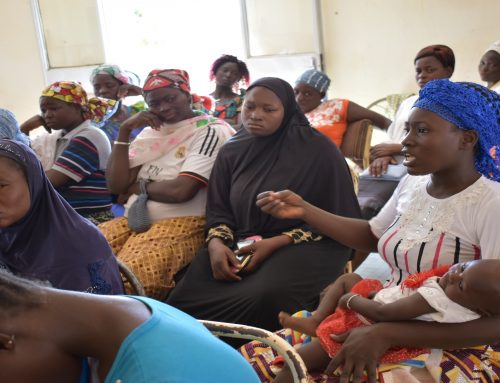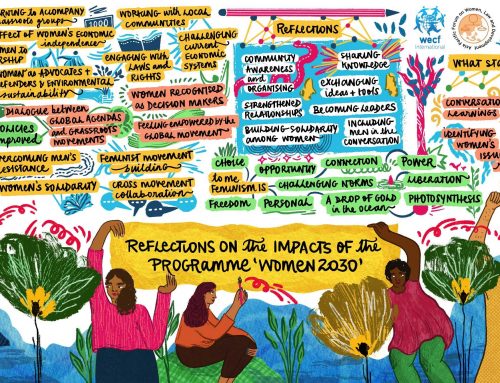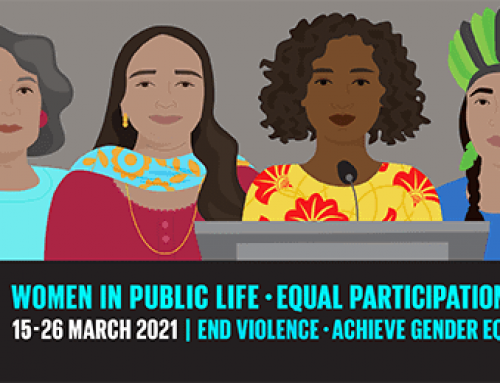25 May 2016 – Nairobi, United Nations Environment Assembly 2 (UNEA-2)
UNEP, together with report partners including Women in Europe for a Common Future (WECF) (1) and Global Forest Coalition (GFC) (2) today launched a new and pivotal report, “GGEO – Global Gender Environment Outlook”. (3) The report calls for all environmental policies to be gender sensitive, and for a new understanding about the role of women as agents of change.
Speakers at the launch included Elliot Harris, UN Assistant Secretary-General and Director of UNEP New York Office; Victor Rønneberg, Ambassador of Norway to Kenya; Simone Ellis Olouch-Olunya, Deputy Regional Director of UN Women Eastern and Southern Africa; and Jaqueline McGlade, Chief Scientist and Director, Division of Early Warning & Assessment UNEP They emphasised that the conclusions of the report must be taken on board in full by governments negotiating a range of critical resolutions at the second United Nations Environment Assembly (UNEA-2), which is taking place in Nairobi this week.
 “Shockingly these gender aspects are barely reflected in the draft resolutions that are on the table at the UNEA meeting at the moment” states Sascha Gabizon, executive director of WECF. “This report shows UNEA-2 needs to break the mould, fully recognising that there are gender aspects to every environmental issue, and seeking to involve women—at all levels—in seeking real solutions.”
“Shockingly these gender aspects are barely reflected in the draft resolutions that are on the table at the UNEA meeting at the moment” states Sascha Gabizon, executive director of WECF. “This report shows UNEA-2 needs to break the mould, fully recognising that there are gender aspects to every environmental issue, and seeking to involve women—at all levels—in seeking real solutions.”
WECF and GFC (4) applaud UNEP’s new emphasis on the vital importance of addressing gender concerns across the full range of environmental issues, including forest conservation and restoration, and climate change. Women’s traditional knowledge and responsibilities as stewards of nature mean they are well positioned to contribute to community conservation across the world, and to enhancing the resilience of their livelihoods in response to changing environmental realities, such as climate change.
“The UN’s Paris Agreement on climate change shows that fine words about women’s participation will help little if more profound gender inequities are not addressed. False solutions like carbon markets in forests and agriculture are marginalising women whose land tenure rights are seldom recognised” said Isis Alvarez, GFC’s Gender Advisor and Campaigner.
For further information contact:
Chantal Van den Bossche, WECF, +31 6 28129992, chantal.vandenbossche@wecf.eu
Ashlesha Khadse, media officer, GFC, +91-8600839193, ashlesha@globalforestcoalition.org
Sascha Gabizon, WECF (in Nairobi), +49 172 8637586, sascha.gabizon@wecf.eu
Isis Alvarez, GFC (in Nairobi), + 57 310 2565412, isis.alvarez@globalforestcoalition.org
Simone Lovera, GFC (in Nairobi) +31-6-47392511, simone@globalforestcoalition.org
Notes:

